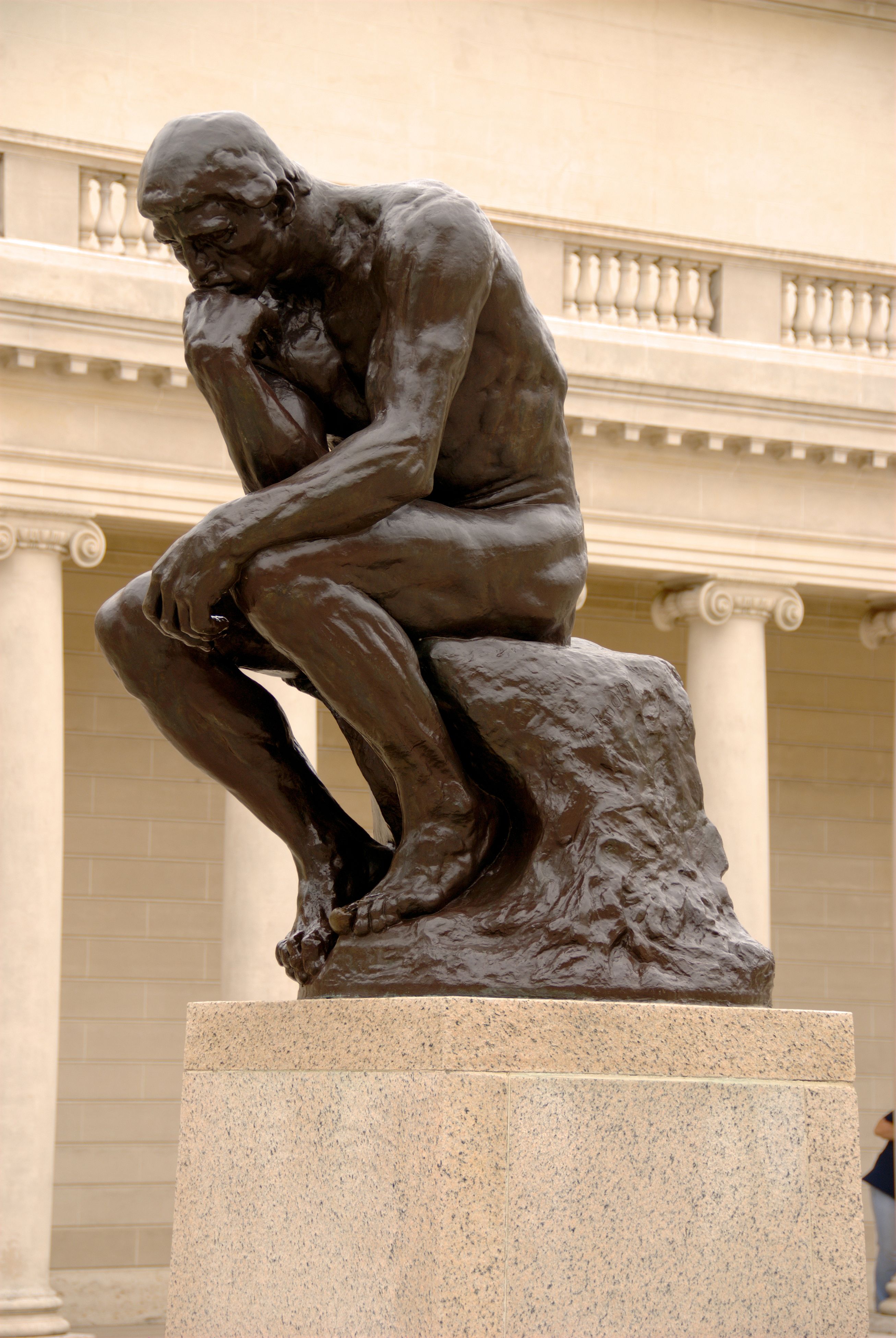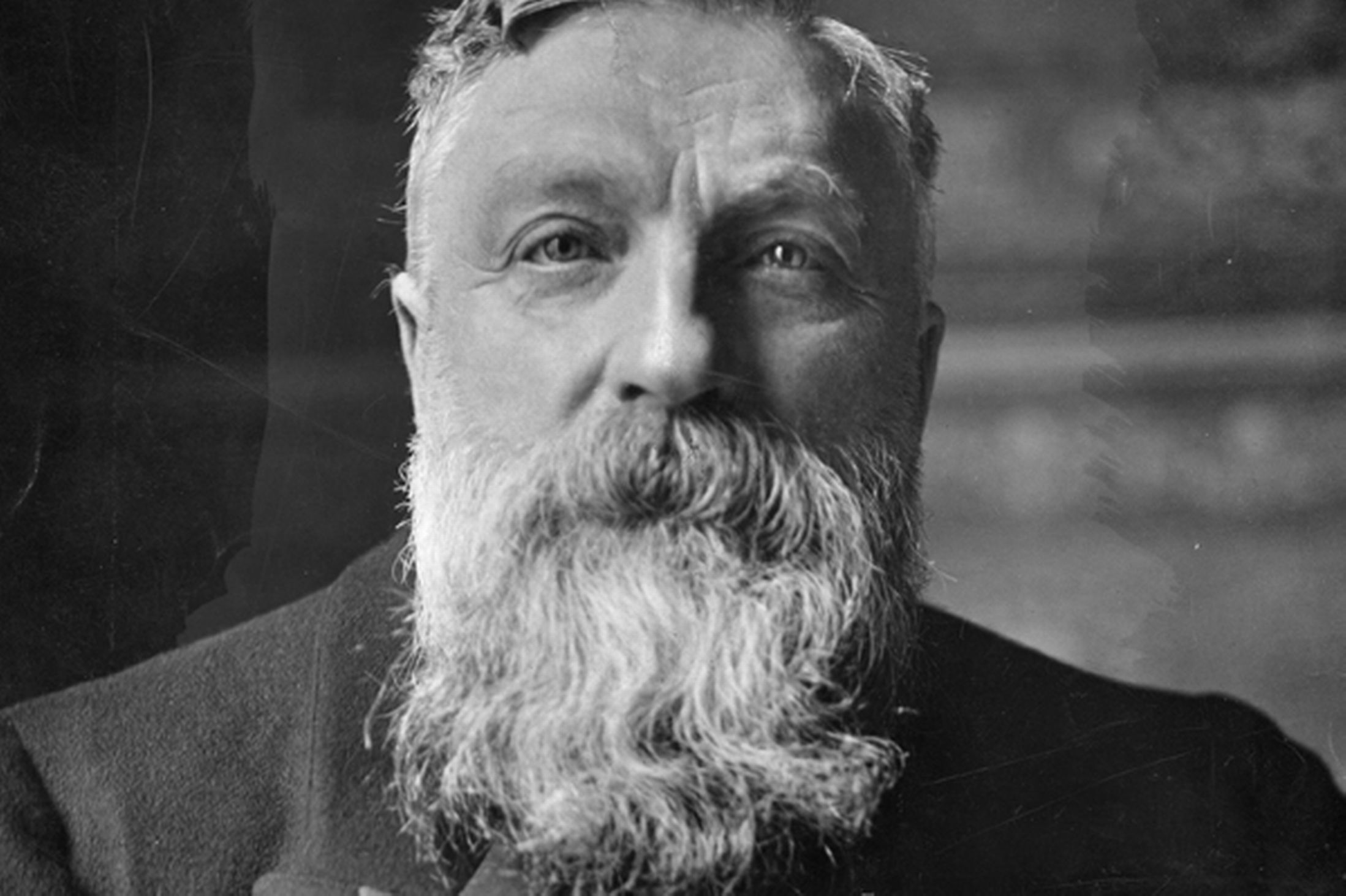The Thinker is a bronze sculpture by Auguste Rodin, usually placed on a stone pedestal. The work shows an over-sized nude male figure sitting on a rock with his chin resting on one hand as though deep in thought. It is often used as an image to represent philosophy. There are about 28 full size castings, in which the figure is about 186 centimetres (73 in) high, though not all were made during Rodin's lifetime and under his supervision. Additionally, there are various other versions, several in plaster, studies, and posthumous castings, in a range of sizes. Rodin first conceived the figure as part of another work in 1880; however, the first of the familiar monumental bronze castings did not appear until 1904.
Originally named The Poet, The Thinker was initially a figure in a large commission, begun in 1880, for a doorway surround called The Gates of Hell. Rodin based this on “The Divine Comedy” by Dante, and most of the many figures in the work represented the main characters in the epic poem. Some critics believe The Thinker, at the centre of the composition over the doorway and at about 70 cm high and larger than most other figures, was originally intended to depict Dante at the gates of Hell, pondering his great poem. However, there are questionable aspects to this interpretation. The first is that the figure is naked and, Dante is fully clothed throughout his poem. The second is that the figure, as used, in no way corresponds to Dante's effete figure. The subject of the sculpture is nude, as Rodin wanted a heroic figure in the tradition of Michelangelo, to represent intellect as well as poetry.


 Auguste Rodin
Auguste Rodin